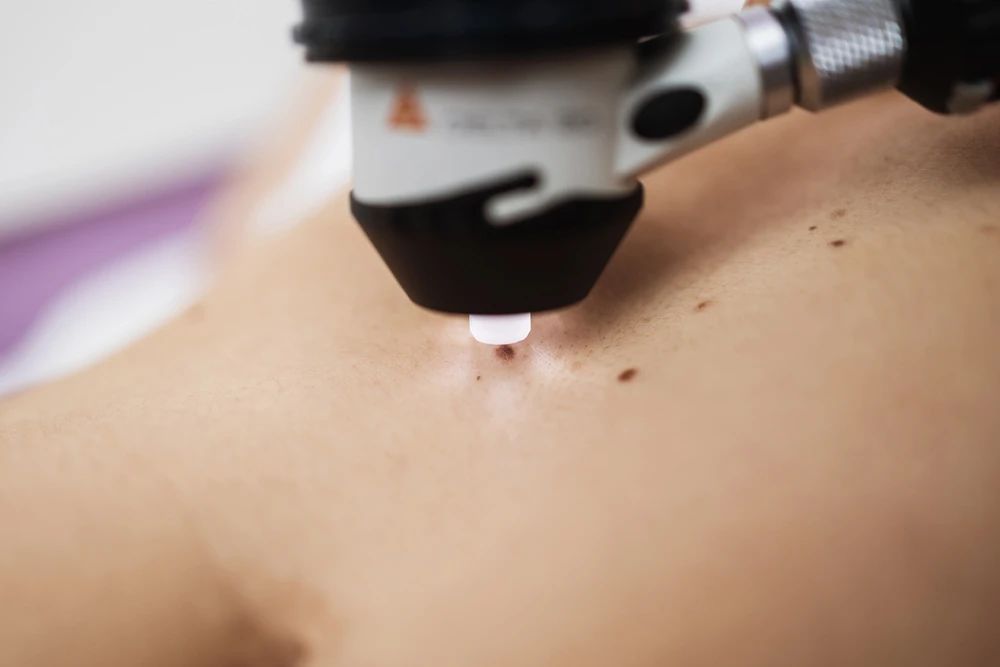Can You Wash and Sanitize Your Hands Too Much?
2021-01-25
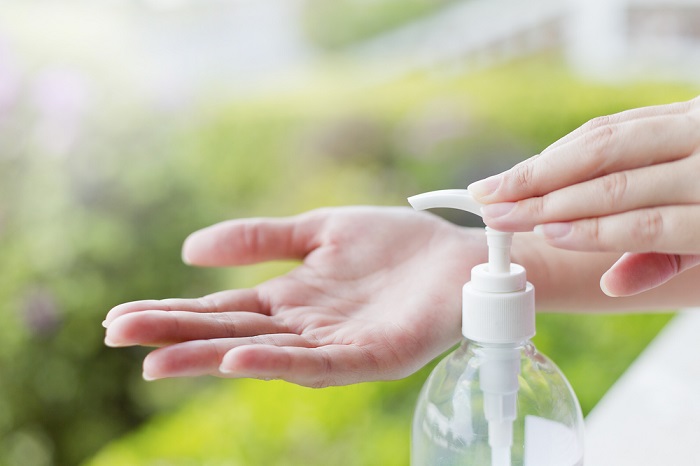
Regular handwashing helps to keep germs and viruses away, but can washing or sanitizing your hands too often harm your skin health?
One of the best ways to protect yourself from common viruses and germs is to wash your hands frequently, especially after using the bathroom, prior to food handing and after blowing your nose.
In times of pandemic, it is common for people to carry hand sanitizers around with them to disinfect their hands in public after coming into contact with surfaces such as lift buttons, door handles or knobs and money.
While good hand hygiene is important, frequent handwashing and sanitizing can lead to dry skin issues.
Breaking down the barrier
Washing your hands with soap and water help to rinse away dirt and germs, but it also strips away the healthy oils that your skin needs to stay healthy and the good bacteria that defend against disease. The use of alcohol-based hand sanitizers when soap and water are not available irritate your skin less than soap, but they do not get rid of all types of germs. Only soap and water are able to wash away the visible dirt or grease on your hands. Unfortunately, the very products you use to keep your hands clean and even the water itself are stripping the skin of your hands of the much-needed barrier that is there to protect them from damage.
In a study conducted to investigate the effect of skin damage due to repeated washing, it has been found that frequent handwashing over a long period of time can cause long-term changes to the skin, resulting in skin conditions such as chronic skin damage, irritant contact dermatitis and eczema. Moreover, damaged skin can increase the risk of harboring and transmitting infectious microbes.
So how can you keep your hands healthy and still be hygienic?
1. Use warm water
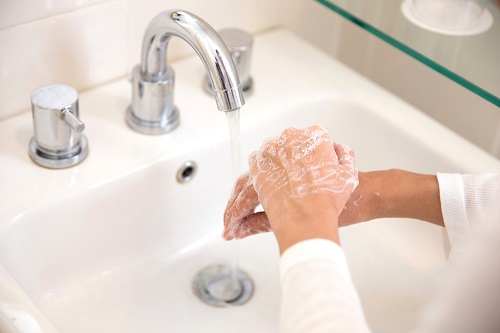
Don’t use hot water to wash your hands as this strips the skin of natural oils that it needs to stay waterproof. Hotter water does not mean cleaner hands. Washing in warm water with sufficient soap will do just as well.
2. Choose your soap wisely
Soap can have a drying effect on the hands so be sure to pick a moisturizing soap. Look for products that say moisturizing on the packaging and with ingredients such as glycerin and lanolin. Choose liquid soaps instead of the bar variety as the binders that hold soap bars together contain high pH levels that can dry out your skin. Avoid perfumed soaps as these can irritate already chapped or dry skin.
3. Be gentle
As well as choosing a more gentle soap to wash with, do take care to use gentle actions when washing your hands. We have a tendency to rush through the washing process due to busy schedules but take care not to be too aggressive as this can aggravate the skin.
4. Make hand cream your best friend
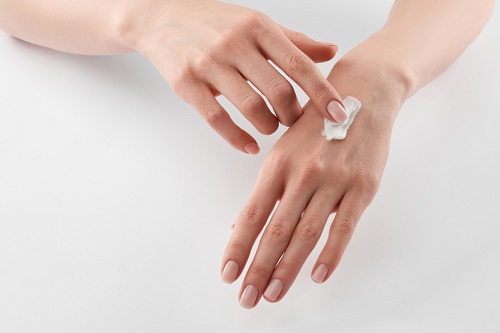
As you apply water to your hands while washing, the water acts like a magnet drawing out existing moisture from the deeper layers of your skin, which will also contribute to drying your skin out. So, you need to replenish the moisture in your skin after washing. Have a handy tube of hand cream next to your hand soap or carry a tube around with you so that you can apply immediately when you need to. You can also apply it before you go to bed and any time your hands feel dry. Select cream or ointment varieties rather than lotions as lotions have too high a water content in them and don’t provide the barrier your skin needs.
Applying hand cream will:
- increase the moisture content of the skin
- restore the barrier function of the skin
- provide a protective film
- soothe the skin
- improve the skin’s appearance and keep it soft
5. Treat your hands to a soothing mask
For added care, and to ensure the surface moisture sinks in, especially if you suffer from dry, chapped hands, try a mask treatment. To do this, soak your hands in clean water for 5 minutes, apply a thick layer of moisturizing cream or Vaseline, and slip your hands into a pair of cotton gloves for the night. Leave the gloves on for around 8 hours. This treatment will also help when travelling to colder climates where the cold and wind can severely dry your skin.
6. Switch to hand sanitizer
If you still find your hands drying out, consider switching over to a hand sanitizer instead of soap. This reduces the amount of water you need to use. However, do bear in mind that hand sanitizer is no substitute for soap for washing hands before eating, after going to the bathroom and when your hands are visibly soiled. Be aware also that the most effective hand sanitizers contain high levels of alcohol and this can have a drying effect as well.
Dry thoroughly after washing
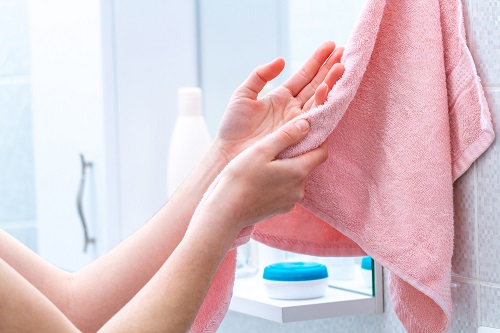
Use a cloth or paper towel to dry your hands thoroughly after washing as germs are more easily picked up on wet hands. Again, be gentle with your hands and blot rather than rub so you don’t irritate the skin. Replace cloth towels in your home every 3 days and ensure that each family member has their own towel to use.
When should I wash my hands?
While it is important to wash your hands regularly for basic hygiene and to reduce the risk of viral infections, over-washing can actually compromise your immune system. You need to expose your body to a limited amount of potential harmful pathogens to train your immune system to fight it and make it better able to respond when your body comes into contact with foreign bacteria and viruses. Wash your hands:
- After using the bathroom or changing diapers.
- After blowing your nose, coughing, or sneezing.
- After touching animals or animal waste.
- After touching garbage.
- After coming into contact with bodily fluid or after sexual activity.
- Before, during and after food handling.
- Before and after contact with a sick person.
- Before and after treating a cut, sore or wound.
- Whenever they feel or look dirty.
Signs you are overdoing it
If your hands start to get itchy, flaky, painful or red, it’s probably a sign that the skin barrier is being damaged. When you start to see cracks in your skin, you become more susceptible to bacteria entering the body.
If you start experiencing these symptoms, see a skin specialist for advice on how to heal your hands and restore the skin’s natural protection barrier. For more information or to make an appointment, contact our Appointment Service Center at 400.819.6622.
References:
- 7 Tips to Keep Your Skin Healthy While Washing Your Hands Often. Retrieved on 7/4/2020 from https://www.healthline.com/health-news/how-to-keep-your-skin-healthy-while-washing-your-hands-often#7.-Blot-dry
- COVID-19: How to care for dry hands after washing them so much. Retrieved on 7/4/2020 from https://www.uclahealth.org/body.cfm?id=1397&action=detail&ref=5741&fr=true
- Quick Dose: Can You Wash Your Hands Too Much? Retrieved on 7/4/2020 from https://www.nm.org/healthbeat/healthy-tips/quick-dose-can-you-wash-your-hands-too-much
- You Might Be Washing Your Hands Too Often. Retrieved on 7/4/2020 from https://www.huffpost.com/entry/washing-hands-too-much_n_5b7b0141e4b0a5b1febdce5f
- How to Take Care of Your Hands When You’re Washing Them So Much to Prevent Coronavirus. Retrieved on 7/4/2020 from https://time.com/5800275/covid-19-wash-hands-dry-skin-tips/
- Hygiene of the Skin: When Is Clean Too Clean? Retrieved on 7/4/2020 from https://wwwnc.cdc.gov/eid/article/7/2/70-0225_article









